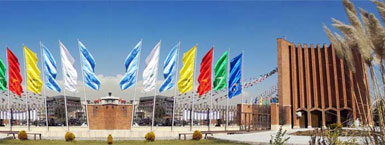In recent decades, the Earth has been increasingly affected by
environmental degradation, climate change and pollution of water, soil and air.
However, to meet these challenges, scientific and technical capacities in different
countries of the world have not been proportionate to the speed of these changes.
Understanding this global challenge, the Environmental Engineering Department of
Tarbiat Modares University is committed to playing a role in the solving of these
ever-increasing environmental problems by educating qualified experts, training
top researchers and conducting applied research in various fields of environmental
engineering. This department has been offering master programs since 1989 and it
has been admitting doctorate students since 1997.
The main research interests of the faculty members include:
Developing new methods for sanitary and industrial wastewater
treatment, nanotechnology applications in water and wastewater treatment, normal
and hazardous waste management, contaminated soil treatment, water quality modeling
and management, new energies, sustainable development and LCA.
The results of the activities of the students and faculty members of this department
have been documented in the form of scientific and ISI articles presented at prestigious
internal and external conferences, book compilations and patents and research projects.
It should be noted that the Environmental Engineering Laboratory, which started
its activities in 1992, has played a pivotal role in the advancement of the above-mentioned
research projects. The department has also carried out several projects in cooperation
with various organizations, most notably the consulting service rendered to the
World Bank, UNESCO and the Asian Productivity Organization (APO). The key objectives
of the Environmental Engineering Department for future activities are educating
and training students to provide dedicated and expert staff in master and Ph.D.
levels, obtaining the tools and results of environmental research in the world,
including the acquisition of new technologies in areas such as nanotechnology, biotechnology,
etc.; conducting applied research on environmental problems, providing specialized
services to other institutes and educational and research centers; creating suitable
fields for inter-university and research centers; establishing a link between industry
and university by carrying out projects and holding workshops at different levels.
|




